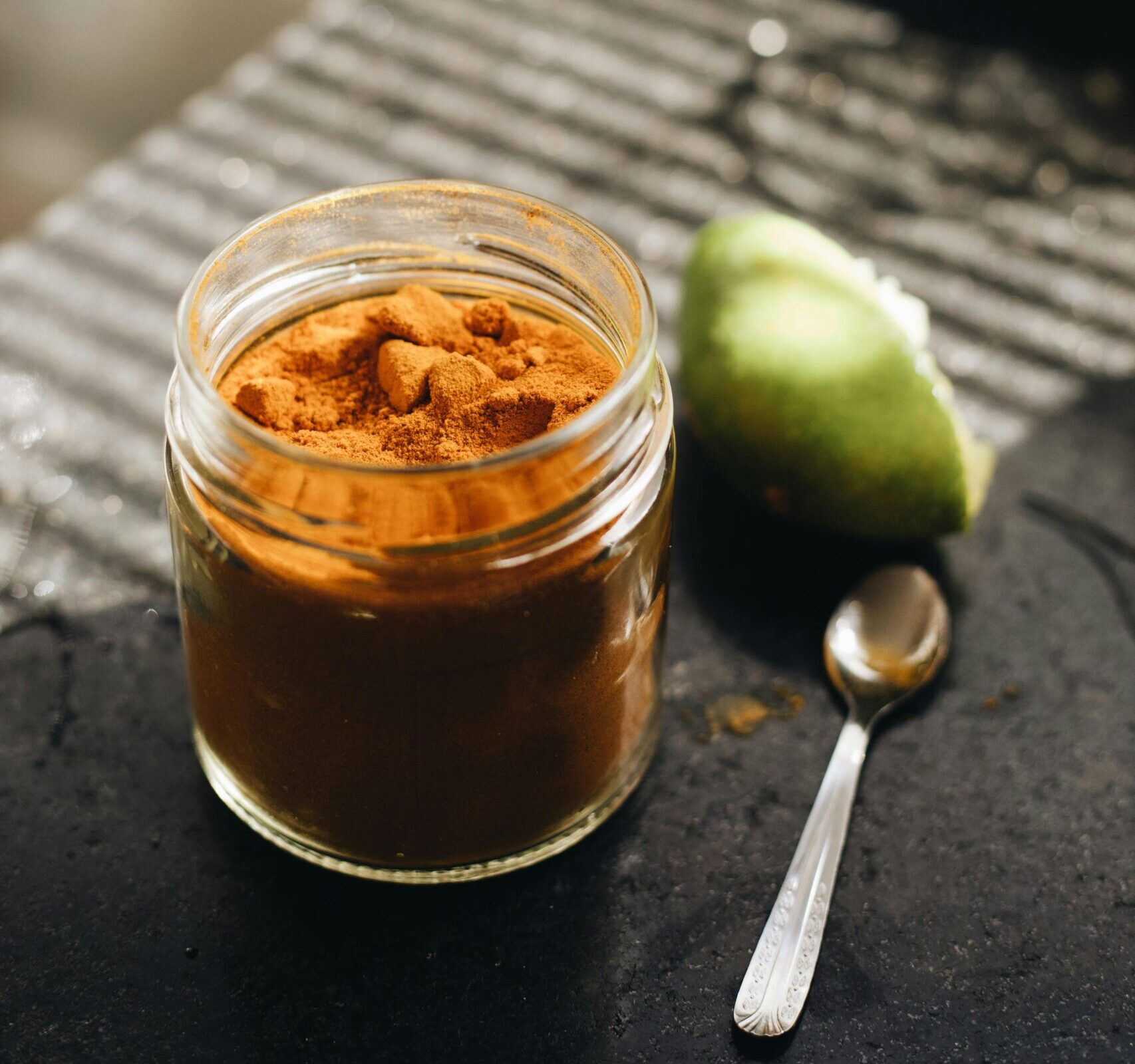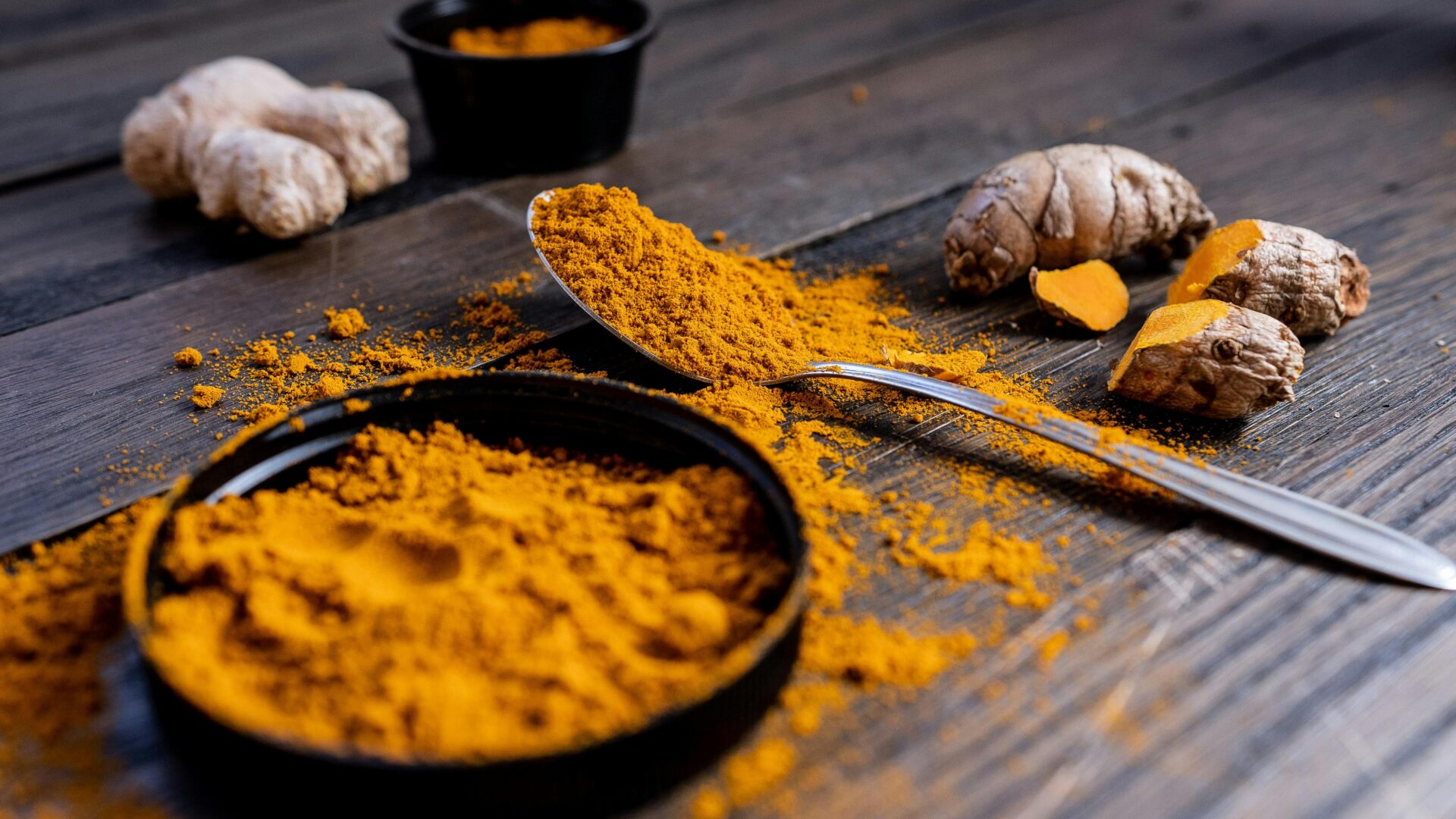If you've ever savoured the vibrant and earthy flavours of an Indian curry, you've likely delighted in the taste of turmeric. But did you know this vibrant spice is also a powerhouse of health benefits? Packed within its golden hues are potent compounds, which can transform your health. If you are looking for natural ways to boost your wellbeing, turmeric is an excellent place to start. This article is here to guide you through the significant advantages of regularly consuming this 'golden spice'. We'll delve into the scientific truths behind the myriad of health benefits associated with turmeric, and show you how this humble kitchen ingredient can bring a potent, health-boosting dimension to your everyday diet.
What is turmeric?
Turmeric, known scientifically as Curcuma longa, is a bright yellow spice derived from a plant in the ginger family. Grown primarily in India and Southeast Asia, it plays a starring role in traditional Ayurvedic medicine and in various cuisines worldwide. The distinctive colour and flavour come from a chemical compound called curcumin, which is also responsible for most, if not all, of its profound health benefits.
When consumed, curcumin in turmeric offers powerful anti-inflammatory and antioxidant effects. But it’s not just about physical health—its potential for boosting brain health and warding off mental health conditions is also a subject of ongoing research. These qualities make it far more than a mere spice. Thinking of turmeric as an essential component of health and wellness wouldn’t be a stretch.
The science of turmeric
To truly understand the health benefits of turmeric, let’s delve into its make-up. Turmeric’s primary active ingredient is a compound called curcumin, a bright yellow chemical produced by the plant, that has potent medicinal properties. It’s the curcumin in turmeric that gives it not just its rich colour, but also many of its health benefits.
Studies show curcumin to be a strong antioxidant, capable of neutralising harmful free radicals in the body, consequently protecting your cells from damage. Curcumin is also known for its impressive anti-inflammatory effects. By blocking certain signalling molecules in the body, curcumin helps reduce inflammation and as a result, it may play a role in the prevention and treatment of chronic diseases such as heart disease, cancer, and neurodegenerative diseases.
However, it’s crucial to note here that curcumin isn’t readily absorbed into the bloodstream when consumed. This is where the concept of bioavailability comes in, which is essentially how well a substance is absorbed and utilised by the body. Curcumin’s bioavailability is relatively low, which means that despite its potential health benefits, it’s not easily absorbed.
But don’t let that discourage you from incorporating turmeric into your diet. To boost curcumin’s bioavailability, it can be consumed with black pepper. Piperine, a compound found in black pepper, enhances the absorption of curcumin by up to 2,000%! Another way to boost the absorption is to consume it with fats, since curcumin is fat-soluble.
Health benefits of turmeric
Now that we’ve journeyed through understanding the composition and historical usage of turmeric, let’s delve deeper into the more specialised health benefits this spice has to offer. By incorporating turmeric into your daily regime, you could notch up your health in more ways than one.
Natural Antidepressant
Feeling blue? Turmeric might be your sunny solution! Studies show that curcumin, the active ingredient in turmeric, has similar effects to an antidepressant. It’s believed to promote mood-boosting serotonin and dopamine in the brain. While it shouldn’t replace professional treatment for serious depression, it could definitely serve as a natural alternative treatment for upliftment.

Cancer Defense
While there’s yet no single cure for cancer, turmeric shows promise as a potential cancer-fighting agent. Studies suggest that curcumin possesses properties that can inhibit cancer development, growth, and spread at the molecular level.
One of the ways in which turmeric could play a role in battling cancer is by reducing angiogenesis. Angiogenesis is a process by which new blood vessels grow in tumours to supply them with nutrients and oxygen. Curcumin can inhibit this process, thereby starving the tumour of its blood supply and hindering its growth.
Additionally, turmeric has shown promise in preventing the spread of cancer cells, a process known as metastasis. Curcumin can interfere with the signalling pathways, which cancer cells use to spread throughout the body, reducing the risk of cancer cells migrating to other organs.
Overall, turmeric’s potential to combat cancer is a beacon of hope for millions of people worldwide. While more research is needed to fully understand its effects, incorporating turmeric into one’s diet could be a step towards promoting overall health and reducing the risk of cancer.
Powerful Anti-inflammatory Effects
Primarily, one of the most renowned health benefits of turmeric is its potent anti-inflammatory properties that extend beyond mere dietary support. Indeed, this yellow spice has a long history in traditional medicine for fighting inflammation. Why is this important? Inflammation, in its chronic form, can lead to various diseases such as heart disease, cancer, metabolic syndrome, and Alzheimer’s.
It’s important to note how turmeric achieves this. A compound in turmeric, called curcumin, is known for its remarkable anti-inflammatory effect, that matches the effectiveness of some anti-inflammatory drugs, without their side effects, according to research (1).
Impressive Antioxidant Capacity
Antioxidants are crucial for safeguarding our bodies from free radicals, unstable molecules capable of damaging our cells and contributing to ageing and diseases. Turmeric, with its active ingredient curcumin, is a potent antioxidant, that can neutralise free radicals because of its chemical structure, according to a study (2).
Potential Fighter against Alzheimer's Disease
Perhaps incredibly, turmeric may be instrumental in preventing and treating Alzheimer’s disease, a degenerative condition for which there is no known cure. Several studies, such as one published on PubMed (3), have shown that curcumin can cross the blood-brain barrier and has the potential to lead to various improvements on the molecular path to Alzheimer’s.
Beneficial for Arthritis Patients
Given its strong anti-inflammatory properties, it’s no surprise that turmeric can be very beneficial for people suffering from arthritis. A study (4) conducted on rheumatoid arthritis patients revealed that curcumin was even more effective than an anti-inflammatory drug for reducing pain and swelling in the joints.
Boosts Brain-Derived Neurotrophic Factor (BDNF)
Turmeric isn’t just about physical wellness; it’s an ally for your brain health, too. You may find it fascinating to know that turmeric can increase the levels of Brain-Derived Neurotrophic Factor (BDNF) – a type of growth hormone functioning in your brain. Low levels of BDNF are linked to numerous brain disorders, including depression and Alzheimer’s disease. Isn’t it wonderful how stirring in some turmeric into your meal could potentially elevate your cognitive health?
Potential to Reduce Stress and Anxiety
Despite many people overlooking it, turmeric serves as an influential adjunct in managing stress and anxiety. Researchers have discovered that curcumin can influence the biochemical pathways involved in the regulation of stress responses in the body. It helps to balance out cortisol levels – commonly regarded as our ‘stress hormone’ – and stimulates the production of dopamine and serotonin, two vital neurotransmitters responsible for regulating mood and promoting feelings of happiness and well-being.
This potential stress-relieving impact isn’t all from theory; it’s backed up by scientific studies. One clinical trial, exploring curcumin’s efficacy in managing depression, found that patients noted significant improvements in their mood after consuming curcumin regularly. Another study further backed up these findings, with participants showing decreased symptoms of stress and anxiety after a few weeks of consistent curcumin intake.
Impact on Heart Health
Last, but certainly not least, turmeric can positively contribute to heart health. Heart disease is a complex condition, but curcumin may help reverse several steps in the heart disease process. It was discovered (5) that it can improve the function of blood vessel linings, which regulate blood pressure and blood clotting, therefore potentially reducing your risk of heart disease.
Certainly, more studies are needed and many are ongoing, to fully understand and validate turmeric’s full range of benefits and the exact particulars of its impact on different health conditions. But the findings so far are promising and suggest that adding a splash of turmeric to your dishes, or taking a turmeric supplement, can offer numerous health perks.
So, it’s clear that while turmeric has held a trusted place in traditional medicine for centuries, it’s now starting to receive well-deserved recognition from modern science, too. And now, you’re in the know about the exciting science behind turmeric’s remarkable healing powers!
Easy Ways to Integrate Turmeric into Your Diet
Finding it difficult to integrate turmeric into your regular diet? Set those worries aside. Let’s explore some effortless ways you can make turmeric a part of your meals, reaping its numerous health benefits along the way.
One of the easiest ways to start is by adding turmeric to your dishes. Don’t shy away from sprinkling a dash of this golden spice into your salads, stir-fries, or soups. It adds a subtle flavour and a beautiful colour to your meals, not to forget the health perks.
You can also try Golden Milk. This comforting drink is simply a blend of turmeric, warm milk, and a touch of black pepper.
Another method of incorporating turmeric is through turmeric teas or smoothies. These concoctions make for an easy and enjoyable way to include turmeric in your diet. Throw in some fruits or veggies with your turmeric, and voila, you’ve got yourself a nutrient-rich drink!
Also, don’t forget about a turmeric supplement. These can be a practical option if you’re finding it hard to include turmeric in your meals. Just ensure to choose a supplement with a high percentage of curcumin and you’re good to go!
Finally, don’t be afraid to get creative in the kitchen with turmeric. Experiment with it in your marinades or even as a sprinkle on your popcorn! Being bold with this versatile spice can not only enhance the flavour of your meals, but also elevate your health.
Remember, consistency is key to obtaining the maximum health benefits from turmeric. So, start small, maybe with a pinch in your salad and then steadily increase your consumption according to your taste and health needs.
Turmeric supplements: what you need to know
Considering the impressive health benefits of turmeric, you may find yourself interested in integrating this nature’s wonder into your lifestyle more often. And that’s fantastic! However, to make it a regular habit, incorporating it into meals may not be enough due to the limited quantity we can consume. Here’s where turmeric supplements enter the spotlight.
Turmeric supplements dish out a concentrated dose of curcumin, the active ingredient in turmeric with powerful anti-inflammatory and antioxidant properties. They’re specially designed to ensure that you’re getting a potent, absorbable form of curcumin.
Navigating dosage
While there’s no official consensus on the optimal dosage for turmeric or curcumin supplements, most research rests on a daily intake of 500 to 2,000 milligrams of curcuminoid. However, this depends on the condition being treated, so it’s always wise to check with a healthcare provider.
Consider the form
Curcumin’s bioavailability (its ability to be absorbed and utilised by our bodies) may be rather low. There are several helpmates like piperine (a compound in black pepper) or a mixture with fats (as in some formulations, or if you’re taking it with a meal) that can increase bioavailability.
Know the side effects
Like any other supplement, taking turmeric can have potential side effects. Excessive intake may lead to digestive issues, like nausea, diarrhoea or stomach ache. Also, it might not be suitable for those taking blood thinners or who are about to go for surgery. Always consult your doctor before starting any new supplement regime.
Quality matters
Ensure that the supplement you choose is high quality, ideally with verification from a third party. Going for cheaper options may mean you’re getting a product with lower curcumin content or compromised quality.
Conclusion
So there you have it, turmeric’s wealth of benefits, and how to responsibly supplement it into your lifestyle. The potent qualities of turmeric, especially its active compound curcumin, have demonstrated a profound impact on our bodies and brains. Remember, quality is key when selecting turmeric supplements. Investing in high-quality, tested and approved options will guarantee that you unleash turmeric’s full potential for your health journey. In the end, it’s not just a spice or a supplement, but a choice for a healthier, happier you.
Frequently asked questions about turmeric
This can depend on various factors such as your body type, diet and overall health. However, some studies suggest 500 to 2,000 mg daily, split across several doses can provide substantial health benefits.
It certainly may help! The antioxidant and anti-inflammatory qualities of turmeric may improve skin health. It can be applied topically or consumed regularly as a supplement for potential improvements in skin conditions.
While raw turmeric does contain beneficial properties, the curcumin content (responsible for most of its health benefits) is relatively low. Turmeric supplements usually contain higher concentrations of curcumin and often include other components to help increase its bioavailability.
(1) Safety and anti-inflammatory activity of curcumin: a component of tumeric (Curcuma longa)
(2) Antioxidant and anti-inflammatory properties of curcumin
(3) Curcumin content of turmeric and curry powders
(4) Efficacy of Turmeric Extracts and Curcumin for Alleviating the Symptoms of Joint Arthritis: A Systematic Review and Meta-Analysis of Randomized Clinical Trials
(5) Curcumin ingestion and exercise training improve vascular endothelial function in postmenopausal women
Disclaimer
This product is not intended to diagnose, treat, cure, or prevent any disease.
Results may vary / may not be typical.
This information does not constitute medical advice and it should not be relied upon as such. Consult with your doctor before modifying your regular medical regime.

